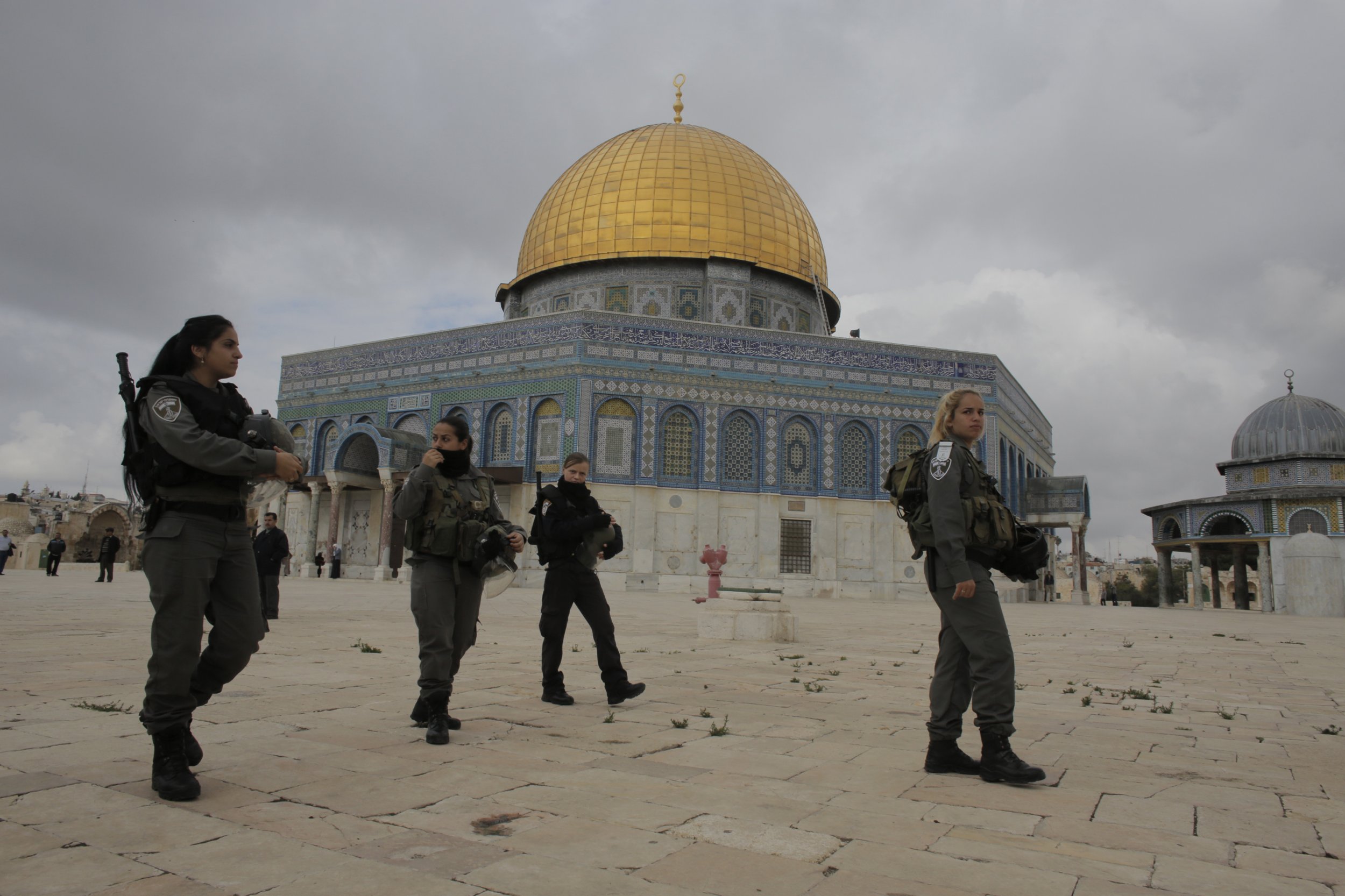
Today, a Palestinian resident of East Jerusalem, Ibrahim al Akri, plowed his van into a group of pedestrians, killing one and injuring another 14. The driver exited the van and started attacking people with a metal rod. He was shot dead by a policeman who was on the scene.
This attack marks the third terror incident in Jerusalem in as many weeks. The first took place two weeks ago, when another driver plowed into a railroad station, killing two, followed by an attempted assassination attack on [the politician] Yehuda Glick last week.
The attack this morning followed violent confrontations this morning between Palestinians throwing stones and molotov cocktails at police on the Temple Mount, a confrontation that resulted in the Israeli police taking the unprecedented action of entering the Mosque itself.

The new level of violence, all of which has been perpetuated by Arab residents of East Jerusalem, has both long-term and short-term causes. The long-term causes begin with the failure of the Israeli government to integrate the residents of East Jerusalem fully into the city or deal with their burgeoning population.
Israeli governments have constantly referred to the city of Jerusalem as "indivisible". However, all of the serious peace proposals have included some form of division of the holy city. This has left the city's residents in limbo, with a government unwilling to spend the money and efforts to the equalize municipal services, or education within both parts of the city.
Yet the long-term failures pale in comparison to the short-term origins of the violence. Both sides are responsible for these calamities, but certainly not equally.
A small group of orthodox, nationalistic Jews has been calling for changing the status quo that has been effect on the Temple Mount since the 1967 Six Day War. Under that, Jews have been allowed to visit the Temple Mount, but not permitted to pray there (a view endorsed by many rabbis, who felt it was inappropriate to pray on the Temple Mount, the site of the ruins of the ancient holy Temple).
The issue of the Temple Mount has always been an incendiary one among the Muslims in Palestine. The first really serious riots that resulted in a large scale slaughter of Jews in 1929 began with a rumor that the Jews wanted to change the prayer arrangement at the "Wailing Wall" (as it was known then), after claims that that was just the first step to taking over the Temple Mount (a patently false charge – especially since the British were in control at the time). However, 67 Jews in Hebron were killed, just the same.

The recent attempts to assert Jewish claims to the Mount by a small minority of Jewish extremists was met by a call from Abu Mazen (also known as Mahmoud Abbas, leader of the Palestine Liberation Organization, who is considered a moderate Palestinian leader) for all Muslims to do "whatever is needed" to block the desecration of the Temple Mount by Jews.
Just this morning, a cartoon was published by the National Security Forces of the Palestinian Authority showing the Al Aqsa mosque (illustrated in the image as a woman) about to be raped by an Israeli soldier. Hamas has been constantly calling on Arabs in the city to rise up and act against the Israelis.
Combine this scenario with the announcement by the Israeli government of additional building in Jerusalem, and the entry of Jewish settlers into homes they legally bought in East Jerusalem, and you have the ingredients to make up a cauldron of violence of the worst kind.
The fear is that the situation will spin out of control and turn the Palestinian-Israeli conflict from one of nationality to one of religion. Historically, wars over nationality can be solved; wars over religion are another matter altogether.
There are many here who think we have passed a point of no return regarding defining this conflict as a religious war. But some believe this has always been a religious war. Sitting in secular Tel Aviv, I hope and pray they are wrong.
Political historian Marc Schulman is the editor of historycentral.com. An archive of his recent daily reports from Tel-Aviv can be found here. He is also a columnist for the Times of Israel. You can follow him on Twitter at @Multied.
Uncommon Knowledge
Newsweek is committed to challenging conventional wisdom and finding connections in the search for common ground.
Newsweek is committed to challenging conventional wisdom and finding connections in the search for common ground.
About the writer
To read how Newsweek uses AI as a newsroom tool, Click here.





